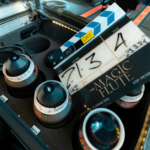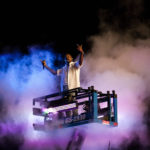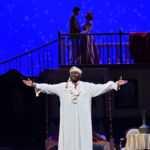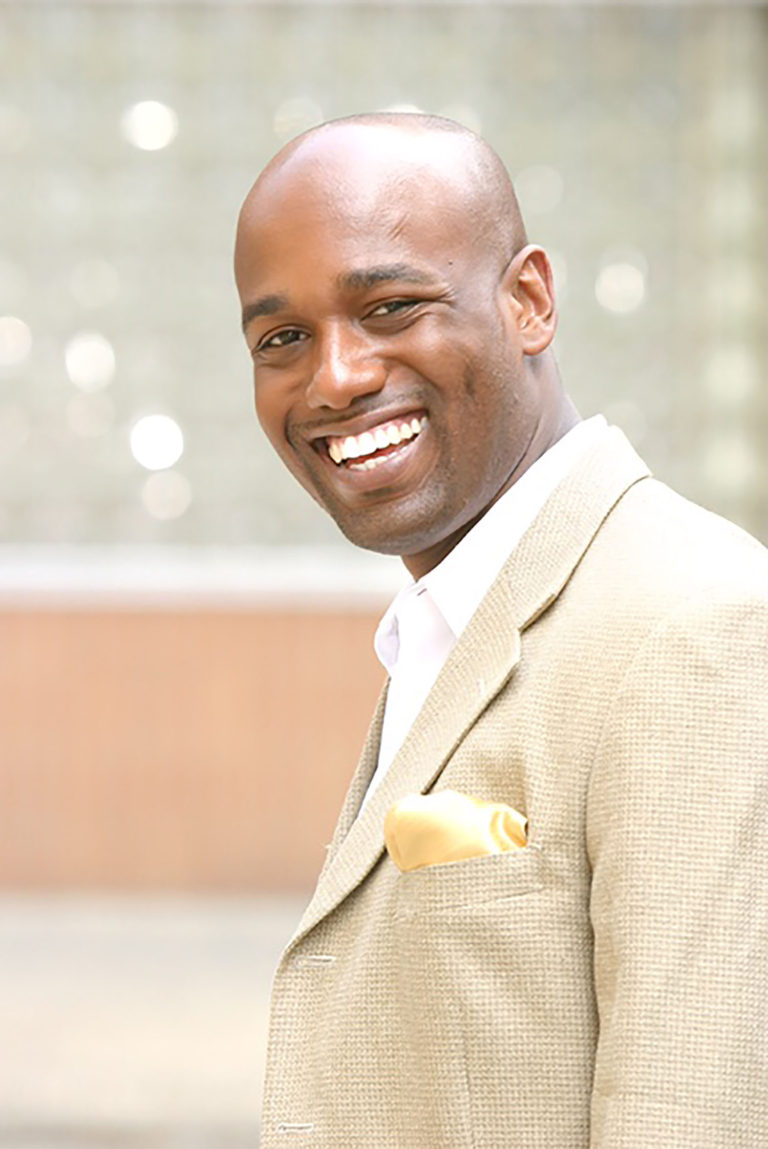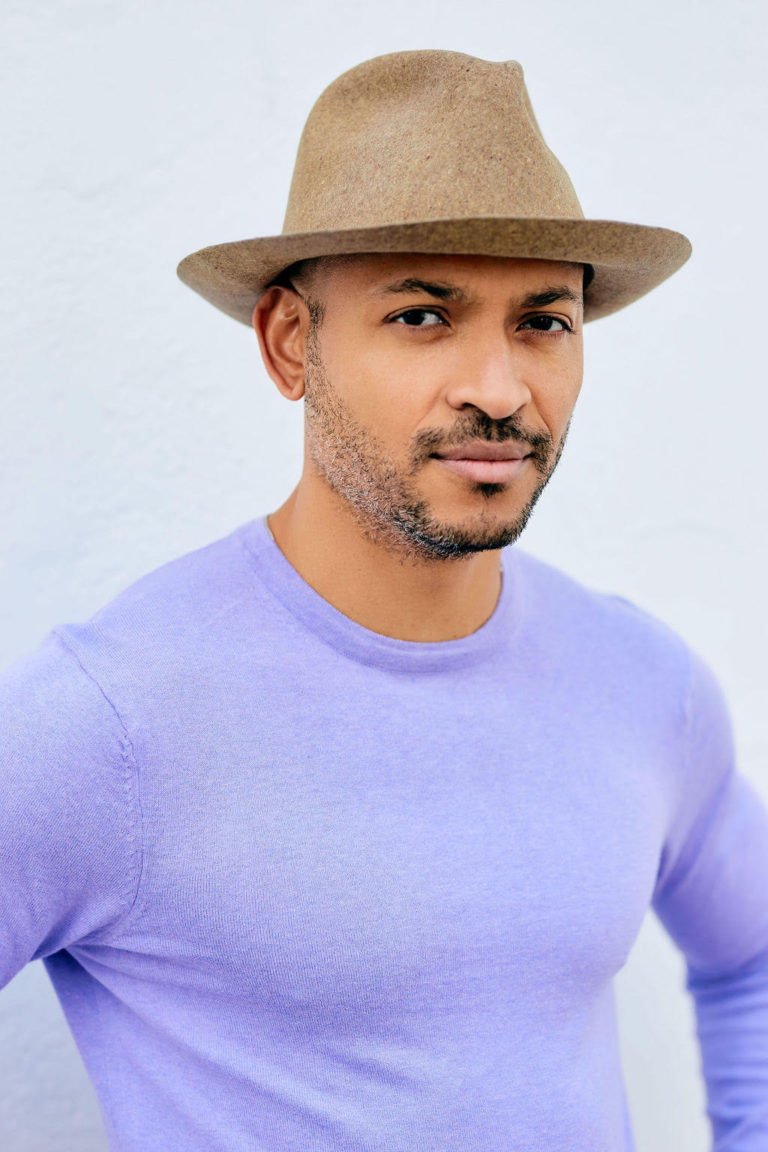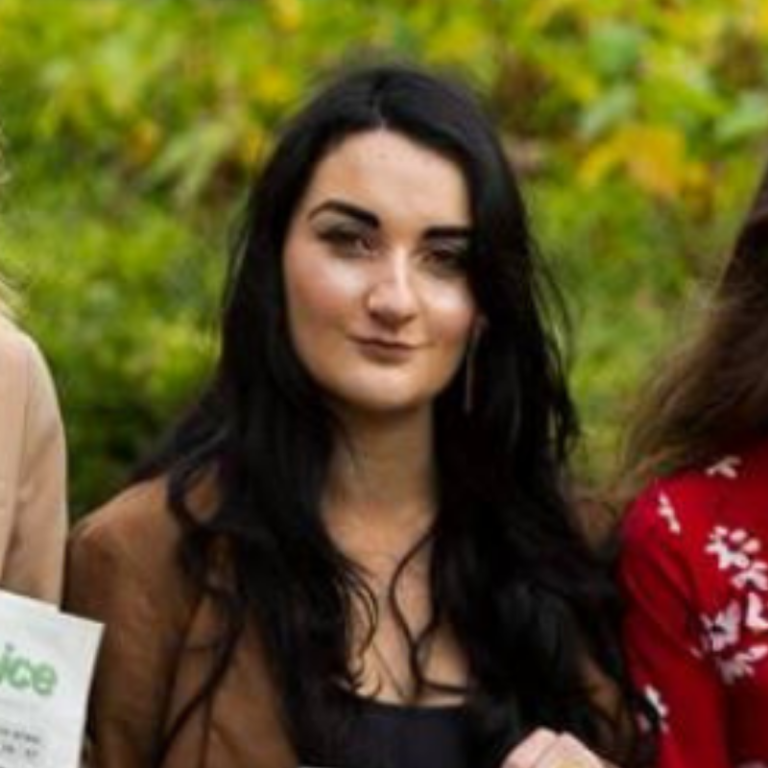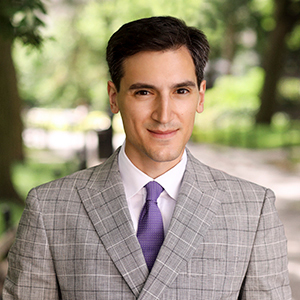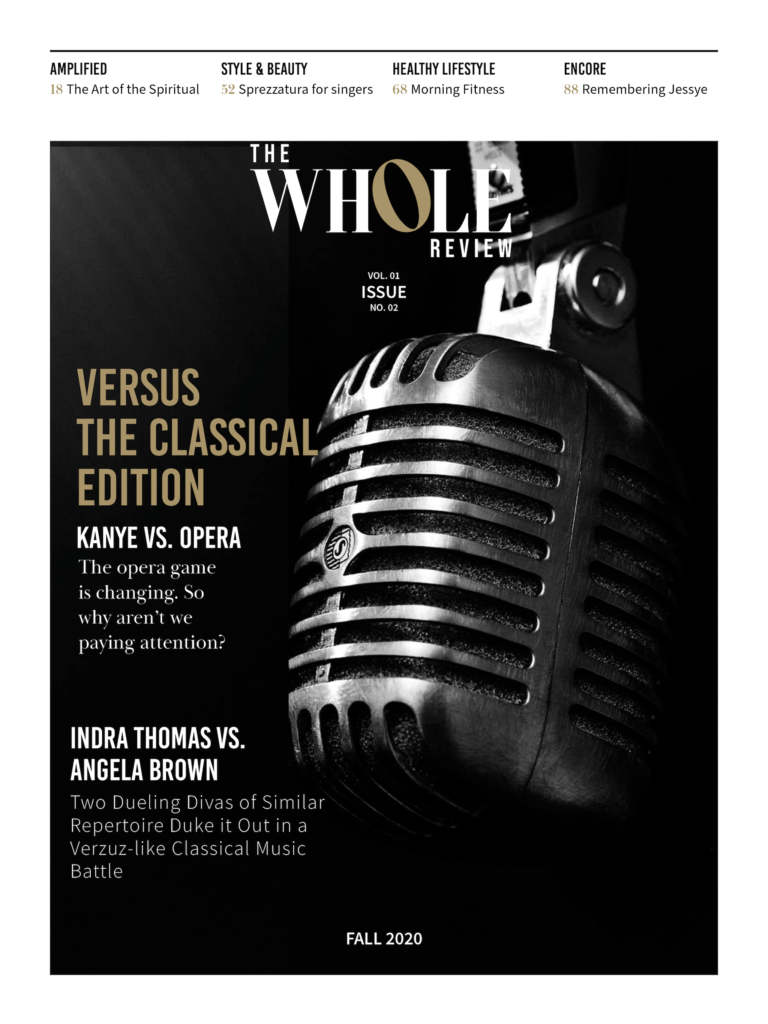Rolando Villazón's exciting juggling act

Malabarista (Juggler)
masculine or feminine noun, Spanish
1. A person who adroitly balances several activities.
One of the many benefits of living as a writer in New York City is the unending inspiration one can stumble upon day to day. The riotously funny guy who plays magic tricks on the corner of 96th and Broadway; the eccentric old lady with the Afro-puff at Columbus Circle who appears to be talking to herself, but really she’s singing hymns under her breath; and of course the infamous bands of subway dancers known as the Showtime boys. They all give the city its unique charm and inspired energy. Walking along Central Park West on a sunny day, I see a tall African American man in the distance juggling four balls high into the sky. His face is severe, focused with such silver energy—a level of concentration that no passersby dare break with cheers and applause. But then comes a moment when he stops, and from across the way a question  rings out, “Hey, how do you juggle all of those balls without dropping one?” The juggler replies, Drops are a part of the business, chief. To offset the drops, you start with one ball. Those words ring clarion, and immediately the key to “El Malabarista’s”—aka Rolando Villazón—success becomes clear. A one-ball juggling routine led him to the pinnacle of opera and, as his creativity blossomed and his career aspirations bloomed, that one ball act expanded to incorporate more “balls.” He has carefully added to his artistic juggling routine, and these myriad additions have made him one of the busiest and most fascinating men in the business today.
rings out, “Hey, how do you juggle all of those balls without dropping one?” The juggler replies, Drops are a part of the business, chief. To offset the drops, you start with one ball. Those words ring clarion, and immediately the key to “El Malabarista’s”—aka Rolando Villazón—success becomes clear. A one-ball juggling routine led him to the pinnacle of opera and, as his creativity blossomed and his career aspirations bloomed, that one ball act expanded to incorporate more “balls.” He has carefully added to his artistic juggling routine, and these myriad additions have made him one of the busiest and most fascinating men in the business today.
Legend has it that he was discovered while singing in the shower. Is that true? “[There] is truth in it,” he says. “I was singing in the shower, and the director of the performing academy, [baritone] Arturo Nieto, came to visit our neighbors for dinner. He listened to whoever was singing in the shower, and came to knock on the door and asked my mother, “Who is that?” My mother said, “I will tell him to shut up.” Said Nieto, “No, we are holding auditions for the performing arts academy; would he like to come?” Villazón auditioned and was admitted to the academy, where he took his first vocal lessons, also studying ballet and theater. Nieto’s knock proved fortuitous, opening the door to a world of possibilities and opportunities. One such opportunity was the 1999 Operalia competition, which thrust Villazón into prominence and launched his career. Although he lost the competition to Bulgarian bass Orlin Anastassov, his electrifying performance of “No puede ser” from Sorozábal ‘s La tabernera del puerto earned him the first Zarzuela prize and was an apparent foreshadowing of the dramatic temperament and magnetic energy that would become his trademark.

That volcanic energy has garnered him praise and critique alike, with vocal critics like Richard Morrison of the Times in London wary of over-pressurized vocalism that would surely lead to a shortened career if not corrected. Undeterred, Villazón forged ahead night after night, his vocal luster shining opulently until a 2009 health crisis threatened to dim his star permanently. After a year out of the spotlight, and a deftly performed vocal operation to remove a congenital cyst, he emerged triumphantly! Villazón is a star tenor whose portrayals of opera’s juiciest parts have brought him international acclaim. His des Grieux, Don José, Rodolfo, and Werther are epic; the vocalism and sheer animal magnetism of each portrayal a wink and a nod to the old guard, which includes Di Stefano, Björling, Corelli, and Pavarotti. Just as he juggles a multifaceted career, so too does he aptly juggle a repertory in which Mozart occupies a prominent place. He has performed the title role in Mozart’s Lucio Silla, Alessandro in Il re pastore, Don Ottavio in Don Giovanni, Ferrando in Cosi fan tutte, Belmonte in Die Entführung aus dem Serail, Basilio in Le nozze di Figaro, the title role in La clemenza di Tito, and Papageno in Die Zauberflöte. He became an exclusive recording artist with Deutsche Grammophon in 2007, and amongst his vast output for the label is a landmark effort to record Mozart’s seven mature operas. To date, he has recorded Don Giovanni, Cosi fan tutte, Die Entfürhung aus dem Serail, Le nozze di Figaro, La clemenza di Tito, and Die Zauberflöte with Yannick Nézet-Séguin at the helm. Only Idomeneo remains to be recorded.

The choice of Papageno over Prince Tamino for the 2019 Deutsche Grammophon recording bears further exploration. He says, “When the time came, two years ago, to record Tamino, I told [Deutsche Grammophon], listen, I’ve never recorded Tamino and I’m not really interested in singing it. I think we can find someone else to sing it and I will come cheer you all on for this [recording]. Then, both Deutsche Grammophon and Yannick came to me and said, “You do have some of the qualities of Pagageno, so why don’t you sing Papageno for the [recording]?” Deutsche Grammophon released video footage of Villazón and Regula Mühlemann as Papagena. Their effusive chemistry as Papageno and Papagena suggests that the tenor “had the time of [his] life.” But, would this be his first and last outing with the charming bird catcher? He told his management team that “if an opportunity comes along to [sing the role] onstage, I would like to do it.” The opportunity presented itself, and he will make his first staged appearance as the lovely bumpkin Papageno at the Metropolitan Opera in December 2021. He hastens to dispel any rumors, however, that he is switching to baritone. “People have said, ‘oh, well you’ve recorded Papageno, so you must be moving to baritone.’” His response to that is an emphatic “No!” “The reason I accepted Papageno is because it was composed for an actor.” The actor to whom he is referring is Emanuel Schikaneder (1751–1812), the most prominent dramaturg of his day. Presumably, this acting distinction puts into context the musical simplicity found in Papageno’s music, which poses no great challenge. Much of the music falls easily within the speaking range of the male voice, and as Villazón notes, “There is no legato in any of Papageno’s music,” further underscoring Mozart’s effort to make the music accessible for Schikaneder, who debuted the role. Having such a prolific association with Mozart, it was not serendipitous that The Salzburg Mozarteum Foundation appointed Villazón as Mozart Ambassador in 2017 and Artistic Director of the Mozartwoche (Mozart Week) that same year. In response to the appointment, he said, “Wolfgang Amadé Mozart is one of the dearest friends of humanity as a whole. No other composer is so equally admired and beloved. I feel joyful, honored, and grateful to assume the enormous responsibility of serving the great master as the new Artistic Director of the most renowned Mozart festival in the world, the Mozart Week. That this happens in Salzburg, Mozart’s birthplace and the city that has had such a wonderful impact on my life and career makes this adventure even more special. Viva Mozart!”

His first full program of Mozart Week activities took place two years after his appointment, but the dark, heavy curtain of the pandemic sought to shutter his plans for 2021.
With so much uncertainty and insecurity looming regarding safety, festival coordinators opted for a virtual festival. “It was all we could have had with the current circumstances,” he says. In all, they put on ten concerts, including an opening concert at which Villazón sang, chamber music programs, and four full orchestral concerts. A particular highlight of the season’s festivities was the discovery and performance of a new Mozart work. “One day, someone called the foundation and said, ‘I have a score, and I think it is an original Mozart.’ They performed all the analysis and studies of the folded-up sheet music, and [determined that] it was an original Mozart score. The piece [The Allegro in D] is a dance meant for orchestra that he arranged for piano.” The world premiere took place on Mozart’s 265th birthday, with Seong-Jin Cho at the piano.

In the midst of the raging pandemic, Villazón has scored another success with the release of his new disc for Deutsche Grammophon, Serenata Latina. In his words, “[Serenata Latina] is a collection of beautiful traditional folk and art songs from my big homeland. [The album’s] themes vary from nature to love, from grief for the spirits of the dead to the joy of being alive. Throughout, we can admire the art and sensibility of the Latin American composers who drank from the European tradition to create their music but remained rooted in the soil of our rich, colorful, sometimes melancholic yet always resilient culture.” The original idea for the album was born some 18 years ago at Vienna’s Musikverein, where French harpist Xavier de Maistre was performing Ginastera’s Harp Concerto. The composer’s widow approached him backstage and suggested he transcribe her husband’s Cinco canciones populares argentinas (Five Popular Argentinian Songs). Inspired, he transcribed nearly two dozen Latin American songs and willed himself to contact Villazón about performing them. The two hit it off and, after some discussion, began recording the disc just as the pandemic had begun to spread. A 65-day lockdown interrupted the recording schedule, but allowed the two to “listen to what [they] had already recorded and to rethink what [they] really wanted.” The result is a beautiful, haunting disc of art songs and folk songs.
Villazón has a wide range of interests too varied and vast to enumerate without dizzying from the number of projects he juggles. His future includes stage directing work—he will direct soprano Pretty Yende in a production of La sonnambula, a co-production with the Thèâtre des Champs-Élysées, Dresden Opera, and Metropolitan Opera. He has his own radio show, television hosting and guest spots, and is actively involved in charitable causes, including an ambassadorship for the RED NOSES Clowndoctors International charity. A published author, he has three novels under his belt, Malabares, Paladas de sombra contra la oscuridad, and Amadeus auf dem Fahrrad. When pressed with the question about his possibly writing a children’s book and incorporating some of his doodles, he smiles coyly and says, “Maybe I will do one.” One gets the impression that whatever his next moves, however many balls he adds to an already full juggling routine, he will succeed at keeping them all in the air without dropping any of them.










